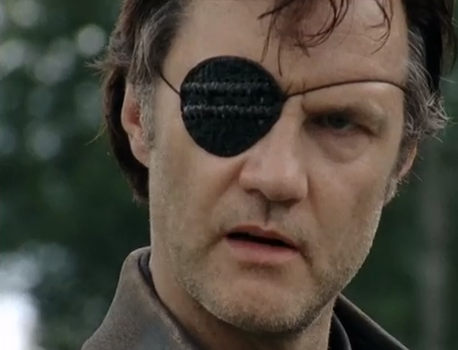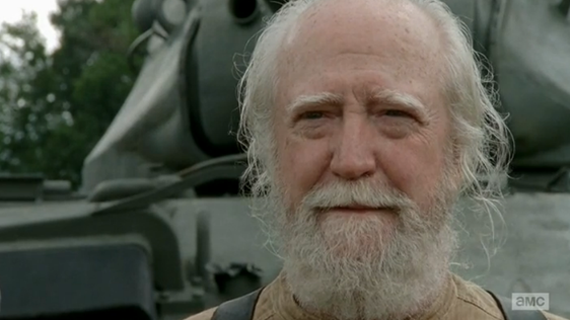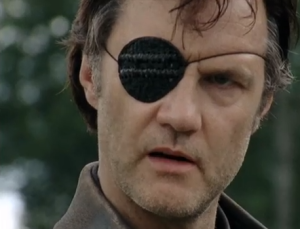My favorite movie of all-time is Forrest Gump, and it has been since high school. I have always loved the relationships in this movie and its unique take on history. I am totally that guy you don’t want to watch this movie with because I will quote every line. Growing up this film made me laugh and it made me curious about history, but one thing it never did was make me cry. I knew there were moments where I was supposed to, but it just never struck a chord with me. However, now I can’t sit through this movie without crying at least two or three times!
So what gives?
At the end of Paul’s letter to the church in Philippi – while he is cold and unkempt in a Roman jail – he writes these words:
Not that I am speaking of being in need, for I have learned in whatever situation I am to be content. I know how to be brought low, and I know how to abound. In any and every circumstance, I have learned the secret of facing plenty and hunger, abundance and need. I can do all things through him who strengthens me. – Philippians 4:11-13
Paul has a secret to being brought low, and he has a secret to abounding in his circumstances. That secret is Paul has Christ. In Christ our valleys and mountains need not be seen as such, but instead they are leveled out. Through the gospel we find a balance*, through the gospel we become more complete as redeemed people because we are being conformed to the image of Christ.
If you take one look at Paul’s first letter to Timothy, you can hardly back away without realizing Paul is seriously ticked off at certain people. Just look at the end of the first chapter alone and Paul is calling dudes out; he’s handing them over to Satan! Compare Paul’s tone in 1 Timothy to what he says in 2 Corinthians:
We have spoken freely to you, Corinthians; our heart is wide open…In return, widen your hearts also. – 2 Corinthians 6:11, 13
This second passage almost sounds like Paul is a romance novelist! Your heart is say what!? How can this be the same guy who in his other letters is handing people over to Satan, or who urges us to contend and fight strongly against false teaching? The picture we get from Paul’s ministry is that he could convey a wide range of emotions when they were appropriate; he was leveled out and more complete as a redeemed person. The saving mercies and grace of Christ through the power of the Holy Spirit were growing Paul to become more like his Savior.
The same should be true for us today. For those of us who were completely hard-hearted and unemotional prior to Christ giving us a new heart, we find that we begin to be more expressive and open to emotions. On the flip-side for those of us who were complete emotional train wrecks prior to Christ, we begin to find that we have a better control of ourselves and don’t lose ourselves in emotions as often. This is the power of the gospel at work in us, balancing and completing us.
It is for this reason Paul is able to tell the believers in Thessalonica not to grieve as those who have no hope (1 Thessalonians 4:13). We have our faith and hope in Christ, and that levels us out. In Christ we are given the strength to respond to all circumstances as Christ would. It should give us strength when necessary, as well as show us when it is appropriate to be weak. We have a King whose strength was shown in weakness, and it is that duality which should come alive in us.
—–
*I give credit where credit is due, and I must say I owe most of this narrative to my Pauline Epistles professor Dr. Jeon. Doc, if you ever read this…thanks!
“A new command I give you: Love one another. As I have loved you–so you must love one another.” John 13:34-35
How did Christ love His disciples? How did He demonstrate His love to them? Was it not, among other ways . . .
in His wonderful patience with them–with their faults, their ignorance, their unfaithfulness;
in His considerate kindness;
in His ever-watchful thoughtfulness;
in His compassionate gentleness;
in His ministering to them in every possible way?
What is it, then, to love one another, as He loves us? Is it not to take His example for our pattern? But how slowly we learn it! How hard it is to be gentle, patient, kind, and thoughtful to one another! Still, the lesson stands and waits for us, and we must never falter in learning it.
“Finally, all of you, live in harmony with one another; be sympathetic, love as brothers, be compassionate and humble.”
– 1 Peter 3:8
~J.R. Miller
I am in love with this new poem by John Piper and read by some of my favorite pastors/theologians today.
One of my professors, Dr. Lee, gets a little lyrical. I am thankful for him and the rest of the RTS DC staff!
3) Thinking About Thinking About Rap: Unexpected Thoughts Over Thanksgiving
Rap music is not my music. I do not come from a culture in which rap music is the medium of communication and I do not have the ear for it that I have for other forms of music. But I do admire its virtuosity and the hold that is has on so many, for whom it is a first and dominant musical language. I want that language taken for the cause of the Gospel and I pray to see a generation of young Gospel-driven rappers take dominion of that music for the glory of God. I see that happening now, and I rejoice in it. I want to see them grow even more in influence, reaching people I cannot reach with music that will reach millions who desperately need the Gospel. The same way that folks who first heard Bach desperately needed to hear the Gospel.
4) ‘Genderqueer’ rising: Colleges welcome kids who identify as neither male nor female
It’s an exercise that might seem superfluous given that Mills, a small and leafy liberal arts school historically referred to as the Vassar of the West, only admits women as undergraduates. Yet increasingly, the “shes” and “hers” that dominate the introductions are keeping third-person company with “they,” ”ze” and other neutral alternatives meant to convey a more generous notion of gender.
“Because I go to an all-women’s college, a lot of people are like, ‘If you don’t identify as a woman, how did you get in?’” said sophomore Skylar Crownover, 19, who is president of Mouthing Off! and prefers to be mentioned as a singular they, but also answers to he. “I just tell them the application asks you to mark your sex and I did. It didn’t ask me for my gender.”
5) Seven Thoughts on Pastors Writing Books
And one last thought for my fellow authors: let’s err on the side of under-promotion. I get it. I know we want our message to get out there. I know a certain amount of promotion is unavoidable (hey, I made two videos for my last book). But don’t pressure your friends to do you favors. Don’t make your book sound like the greatest thing since the five solas. Don’t pass along all the kudos about your stuff. “Let another praise you, and when they do, go ahead and retweet your awesomeness”—I don’t think that’s what Proverbs had in mind. Better to sell fewer books than to look like a bozo getting to the top of the best sellers list. Writing is a privilege, and that should make us humble not hucksters.
6) Federal Judge Declares Clergy Housing Exemption to be Unconstitutional
The Story: A federal judge has ruled that an Internal Revenue Service exemption that gives clergy tax-free housing allowances is unconstitutional. According to Religion News Service, the exemption applies to an estimated 44,000 ministers, priests, rabbis, imams and others. If the ruling stands, some clergy members could experience an estimated 5 to 10 percent cut in take-home pay.
7) The C.S. Lewis You Never Knew
The Christian icon whose image we see in bookstores may first seem distant. He spoke and dressed like a prim Englishman from another time. But his life was messy, contradictory and tarnished by thwarted dreams.
Perhaps Lewis still speaks to us because we when we look closer at his life, he’s really not that unusual.
We see ourselves.
8) How Can Jesus be the Only Way?
I greatly appreciate Michael Horton’s short and succinct answer to this question.
9) Stopping an Affair Before it Begins
Affairs do not begin with sex. Falling into bed with a man who is not your husband or a woman who is not your wife is simply one step in a long chain of events, one decision in a long series of poor decisions.
Note: FULL SPOILERS for the Season 4 mid-season finale “Too Far Gone” are below.
—–
The Season 4 mid-season finale was quite a blow to the gut, was it not? Any fan of the show has probably come to expect big episodes like this; any fan of the comic probably already knew this wasn’t going to end well. In this week’s episode, we saw the full-on return of the Governor, the death of Hershel, the destruction of the home Rick’s group had built for themselves, the death of the Governor’s new “daughter” as well as numerous other fatal casualties. Throughout all of this the writers of the show have one theme they want you to see come to the foreground of the show: “Can you come back? Are you ever too far gone?”
This theme has been subtly played out in numerous ways beginning in Season 3 with the death of Laurie and now finally culminating in this week’s episode. Now in Season 4, this theme has been explored further. Rick has come back from his fake phone-call answering self, but no longer wants to be responsible for any decisions. Hershel routinely counsels Rick on what it means to “come back” from almost losing yourself. We see Rick beginning to learn this lesson, and helping to ground others who start to become “too far gone,” people like Tyreese who would otherwise go into a berserk rampage. Rick is able to make the decision to cast out Carol, who becomes “too far gone” and emotionally desensitized to death.
Three weeks ago the viewers finally meet the Governor again, now wandering aimlessly after taking in the consequences of all that he had done. In our first episode with the Governor, it almost seemed like he was on the path of redemption. Could it be that even though he was so far gone – to the point that he would needlessly murder countless innocents – he could still come back given the appropriate motivations? Unfortunately, this was not the case as we saw in the next episode how the Governor – or “Brian” – is still completely crazy.
All of these aspects and this theme finally came to a head in this week’s showdown. How did this theme play out?
Can You Come Back?
The mid-season finale climaxes at the “negotiations” of Rick and the Governor. At first, the Governor genuinely seems peaceable and willing to let the prisoners live. Of course as the viewers we know the Governor is crazy and that he understands this “peace plan” will never work. Attempting to reconcile the situation, Rick pleads with Brian and his people for a different option. He wants to let them know that we can all “come back” and we don’t have to do these bad things to survive:
Is this what you want? Is this what any of you want?…Look I’ve fought him before, and after, we took in his old friends, they become leaders in what we have here! Now you put down your weapons, walk through those gates, you’re one of us. We let go of all of it. Nobody dies! Everyone is alive right now, everyone who has made it this far. We have all done worse kinds of things just to stay alive. But we can still come back, we are not too far gone! We get to come back. And I know, we all can change.
This emotional speech from Rick is the “gospel” of the Walking Dead. It is the good news that despite all of the brokenness of this apocalyptic world, despite all of the bad choices you make, you can still come back from those dark places and be a good person. You can do the right thing. Rick has proved it, and so have the people of his group.
Ultimately, the Governor is not willing to accept this gospel. Like the Pharaoh of Egypt, his heart is too hardened and no gospel will change that. The result of the Governor’s unwillingness to accept this gospel is sin and death. His beloved “daughter” dies, his group dies, people in Rick’s group die, and ultimately he dies.
We Have a Greater Gospel
What can we learn from this theme of the Walking Dead? I’d like to suggest four things we can all learn:
1. Sin Brings Death
James 1:15 tells us that “…sin when it is fully grown brings forth death.” The consequences of the Governor’s greed, selfishness and revenge could only bring forth death; the death of his loved ones, the death of those around him, and ultimately his own death. There is no way around the consequences of our actions. While we might not back outrageous decisions like the Governor in our own lives, our sin is outrageous in the sight of God and it comes with outrageous consequences. Because of our sin you, me and everyone around us dies. It is a fact of life.
2. We Have a Greater Gospel
The gospel of the Walking Dead is that you can come back from all of the bad things you have done and do the right thing. You don’t have to be a bad person. While this is certainly a great message, it is not the ultimate message. The ultimate message comes from Christ our King. The Christian God does not just say to us “You can shape up and be a better person.” Not at all! Instead, the Christian God acknowledges that we CAN’T fix ourselves, but shows us the way through Christ. God doesn’t abandon us, he gives us Christ to take on our penalty of death-bringing sin and show us the measure of self-sacrifice and love that should motivate our lives.
But when the goodness and loving kindness of God our Savior appeared, he saved us, not because of works done by us in righteousness, but according to his own mercy, by the washing of regeneration and renewal of the Holy Spirit, whom he poured out on us richly through Jesus Christ our Savior, so that being justified by his grace we might become heirs according to the hope of eternal life. The saying is trustworthy, and I want you to insist on these things, so that those who have believed in God may be careful to devote themselves to good works. – Titus 3:4-8
3. Every Other Gospel Fails
While Rick’s “gospel” sounds nice and is a good message, it ultimately fails. It does not change the heart, but only addresses topical behavior. The reason why the Governor and those who follow him do not want to believe Rick’s gospel is because their desires are completely disoriented. No amount of “we can be at peace and do the right thing” can reorient self-obsessed people like the Governor. What they need is not a change of behavior, but a complete change of heart.
We don’t come back from our bad choices and sin through self-effort and trying harder. We come back by being given a new heart in Christ.
Scripture tells us that when we place our faith and hope in Christ and not in ourselves, God removes our heart of stone and gives us a heart of flesh (Ezekiel 36:26). We don’t need behavior change, we need a heart change and that is exactly what God gives us.
4. Real Change Only Comes in Christ
The Walking Dead is only a TV show. It paints us a picture of a reality where despite everything you’ve done, it is still possible for you to change yourself. But our life isn’t a TV show, and we don’t live in a prison surrounded by walkers. The truth is, we can’t change ourselves. No matter how hard we try, we will always do bad things and offend a holy and righteous God. Thankfully, we don’t have a God who leaves us to our own devices. Christ came and showed us the way, he bought us with his blood, and he left us with the gift of the Holy Spirit. Now, under the motivations of God’s great love for us IN CHRIST, we are able to walk in obedience. In Christ, we are able to put on a new self, an image that is created after the likeness of God and is motivated by true righteousness and holiness (Ephesians 4:24).
Like Rick’s gospel (put down your weapons, surrender and walk through the gates), Christ’s gospel requires a surrender of self and obedience to his commandments. We have a greater message and a greater king than any gospel that is of this earth! Christ doesn’t just tell us, he shows us. He doesn’t leave us, he becomes one of us. He doesn’t leave us empty handed, he gives us himself and His Spirit to teach and guide us. We aren’t just individual survivors, but he brings us into a family to walk with us.
Praise be to Christ for giving us far more than we could ever deserve!






